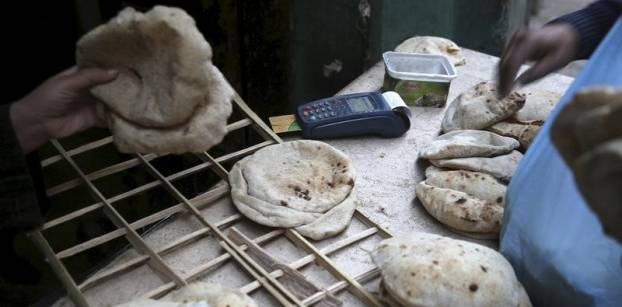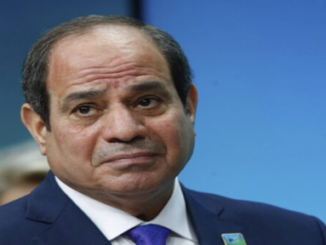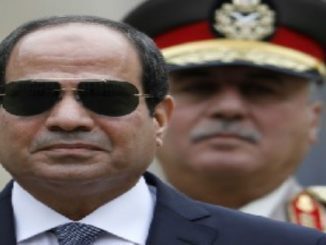
Egypt’s Ministry of Planning and Ministry of Military Production signed Wednesday a protocol for transferring the administration, operation, maintenance and development of the smart-card system for subsidized goods from the Ministry of Planning to the Ministry of Military Production, according to a cabinet statement, reported Aswat Masriya.
By signing the protocol, the smart-card system for the distribution of subsidized goods is officially under the control of the Egyptian military.
Last August, the government declared delegating the smart-card system and the bread cards to the ministry of military production instead of the ministry of planning.
In 2014, the smart-card system was initiated to give Egyptians points to claim against bread and other items. The cards were also designed to stop bakeries selling subsidized flour on the black market.
Since the military coup in 2013 led by Abdel Fattah al-Sisi against Egypt’s first democratically elected president Mohamed Morsi the military started to expand its economic empire.
It has widened its economic activity, including producing cement, supplying medical items to hospitals, as well as running the government’s smart-card system for the distribution of subsidized goods, establishing fish farms and manufacturing water meters.
Moreover, last year al-Sisi issued a law that allows the army to set up companies with the participation of domestic or foreign capital.” Armed forces vans roam the country selling cheap groceries and military retail outlets have popped up, while military agencies have attempted to procure basic commodities from international traders amid shortages,” said Reuters.
In this context, Al-Sisi tends to defend the military in every occasion, saying at a national youth conference held in Sharm el-Sheikh recently that, “In case you’re wondering how large the economy of the armed forces is in terms of GDP, I’m going to tell you so it’s clear: 1 to 1.5 %,” according to Reuters.
Reuters also said,” the size of the military, which produces everything from bottled water to macaroni, has long been a topic of speculation in Egypt but official comment on the scope of its economic activities is rare.”
Al-Sisi also claimed that the armed forces are not entering the economy to profit or compete with the private sector, and that their projects are subject to taxes and regulatory oversight.
He also added that the military would deliver 1,350 projects by 2018 but did not specify their exact nature.



